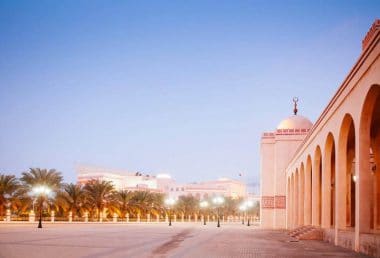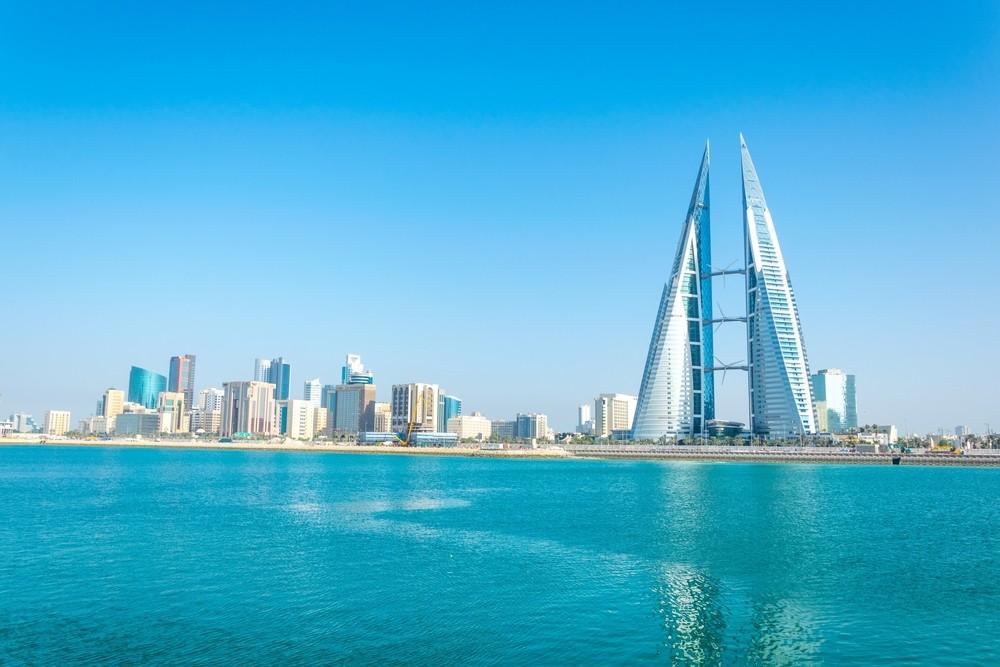The city-state of Bahrain is, like most of its Arab neighbors, a kingdom. With 750 square kilometers, however, it is a dwarf among the countries in this region – hardly larger than Hamburg. But for some, Bahrain is a pearl among the countries of the Arabian Peninsula on the Persian Gulf. Bahrain can be translated as “two seas”, which describes the extraordinary location in a bay west of Qatar and east of Saudi Arabia . In the metropolis of Manama, the contrasts meet with the towering Bahrain World Trade Center, which is about 240 meters high, and the numerous slender minarets of the mosques worth seeing. This area on the Persian Gulf was already inhabited in ancient times and was considered an important transshipment point for goods. Significant in this period of Bahrain’s history was the trade of the Babylonians and Sumerians with the Indus Valley. The islands were named after Enki-Ea, who, as ruler of the Abzu ocean, was also the god of artists, magicians and craftsmen. In the 7th century, Bahrain was conquered by the Arabs, with which Islam prevailed. Traces of history can be found in the Kalat al-Bahrain archaeological site on the north coast of the island. The city, uncovered by archaeologists and ennobled by UNESCO as a World Heritage Site, dates back to the 3rd and 2nd millennium BC. According to the scientists, it was a center of the Dilmun period. Intensive insights into the culture of this early era are provided by the interesting National Museum. It vividly illustrates how customs and traditions of the Dilmun era dominated the everyday life of the people of the Gulf. An important part of the documentation in the National Museum of Bahrain is the history of pearl fishing, as the city-state was the most important supplier of natural pearls for a long time. They were considered the most beautiful and precious in the world. The demand for the treasures from the sea did not fall until the thirties of the last century, when artificial pearls from Japan suddenly dominated the market. With the discovery of the first oil wells, interest in natural pearls finally fizzled out. Where once the fishermen dived for the pearls off the island of al-Muharraq, luxury hotels and comfortable resorts on the beach now rise into the sky. For many years, pearl fishing was regulated by the state – today anyone can keep such a jewel, as long as they are lucky enough to find it in the oyster. Tourists can also dive on a so-called “pearl path”. In the visitor center of Bu Maher Fortress, the history of pearl fishing is told. The capital Manama, whose beginnings date back to 1345, was the first modern metropolis on the Gulf and is still an important financial center not only in the Arab world. In contrast to neighboring countries, alcohol of any kind is sold freely here. Regional and international culinary delicacies are served in numerous restaurants in the city. Some turn into vibrant bars late at night. More recently, the historic bazaar district with its winding souks has been given a fresh coat of paint. 
Travel information Bahrain
| Capital Manama | |
|---|---|
| Form of government | Constitutional monarchy |
| Currency | Bahrain dinar (BHD) |
| Area | approx. 750 km² |
| Population | approx. 1,493,000 (2017) |
| Languages | Arabic |
| Power supply | 230 volts, 50 Hz |
| Calling code | +973 |
| Time zone | UTC +3 |
Important telephone numbers
- Emergency Call (Police, Fire Brigade, Ambulance): 999
- German Embassy in Manama: +973 17 745 277
- Tourist information: +973 17 212 400
German Doctors
- Dr. Peter Sommer: Bahrain Specialist Hospital, +973 17 812 000
- Dr. Hans Müller: American Mission Hospital, +973 17 253 400
The most important words with translation
- Hello – مرحبا (Marhaban)
- Thank You – شكرا (Shukran)
- Please – من فضلك (Min fadlak)
- Yes – نعم (Na’am)
- No – لا (La)
- Sorry – عفوا (Afwan)
- Where is…? – أين هو…؟ (Ayn hu…?)
- How much does it cost…? – بكم هذا؟ (Bikam hatha?)
- Emergency – طارئ (Tari’)
- Doctor – طبيب (Tabib)
- Hospital – مستشفى (Mustashfa)
Holidays
- New Year’s Day: January 1
- National holiday: December 16
- Islamic holidays: variable (depending on the Islamic calendar), e.g. Eid al-Fitr, Eid al-Adha, Islamic New Year, birthday of the Prophet Muhammad
Opening hours
- Shops: Usually Saturday to Thursday from 9:00 a.m. to 10:00 p.m., Friday often shorter opening hours.
- Supermarkets: Usually daily from 8:00 a.m. to 11:00 p.m.
- Restaurants: Lunch from 12:00 to 15:00, dinner from 19:00 to 23:00.
- Banks: Sunday to Thursday from 7:30 a.m. to 2:00 p.m.
Airport
- Bahrain International Airport (BAH): The country’s main airport, located about 7 km northeast of Manama.
Post / Stamps
- Post offices: In all major cities and towns. Main post office in Manama.
Opening hours: Sunday to Thursday from 7:30 a.m. to 2:00 p.m. - Stamps: Available at the post office and in some kiosks and supermarkets.
- Costs for letters and postcards to Germany: Standard letter up to 20g: approx. 0.250 BHD (approx. 0.60 EUR); Postcard: approx. 0.200 BHD (approx. 0.50 EUR)
Safety
- Crime: Bahrain is considered relatively safe, but tourists should exercise caution, especially in busy tourist areas and markets.
- Emergency number: 999
Current
- Voltage: 230 volts
- Sockets: Type G (adapters for European plugs are required)
Tip
- Restaurants: 10-15% of the bill amount is customary if no service charge is included.
- Taxis: Round up the amount
- Hotels: 1-2 BHD per day for cleaning staff
Customs
- Allowances: Personal belongings are duty-free.
- Alcohol: Travellers are allowed to carry 1 litre of spirits or 6 cans of beer.
- Tobacco: 200 cigarettes or 50 cigars or 250g of tobacco.
- Other items: Value up to 300 BHD duty-free.


